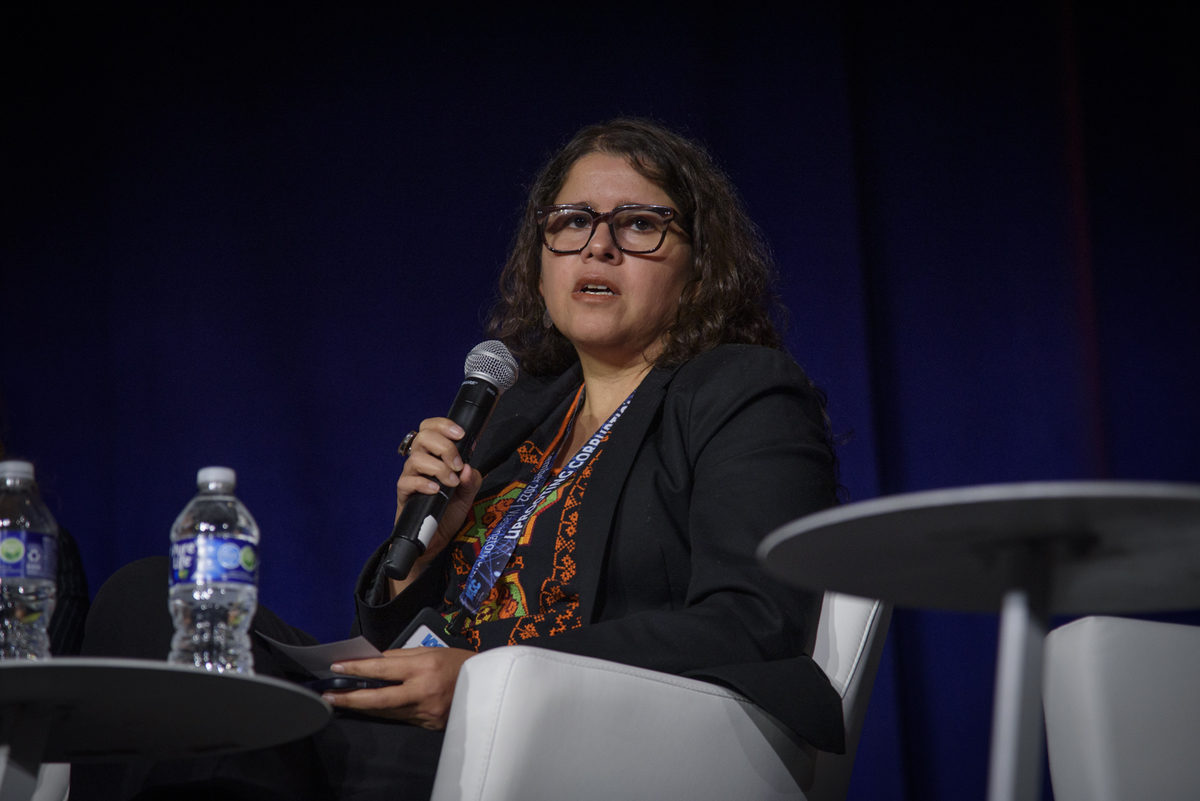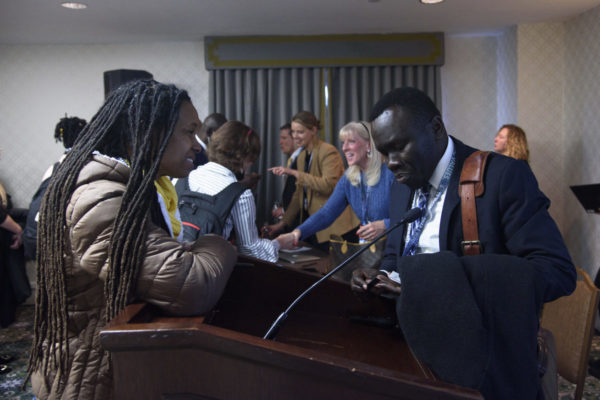Guatemala’s top anti-corruption prosecutors have been arrested and accused of abuse of power.
“Virginia Laparra has been in prison for over nine months, and so far we don’t see any signs of her being released,” said Carolina Jimenez, President of the Washington Office on Latin America (WOLA). “This entire conference should be demanding the unconditional and immediate release of Virginia Laparra, and so should the human rights movement, and so should the pro-democracy movement.”
Laparra was in charge of the Special Prosecutor’s Office Against Impunity (FECI) in Quetzaltenango, one of Guatemala’s most populated departments. She is one of the current and former prosecutors who took part in the anti-corruption efforts led by the International Commission Against Impunity in Guatemala (CICIG), and who are now being targeted for prosecution.
CICIG was precipitously ended by the administration of then President Jimmy Morales in 2019, after twelve years of prosecuting top-level government officials and backing the investigations that led to the indictment of former vice-president Roxana Baldetti, who was sentenced to fifteen years in prison for fraud.
During the International Anti-Corruption Conference in Washington D.C., Jimenez reflected on the new challenges faced by anti-corruption movements and institutions in Latin America, a region where efforts like CICIG were showing results.
“Many of these countries where we have seen major setbacks in the anti-corruption efforts, are countries that cannot do this alone,” Jimenez said. “The role of external actors such as the UN continues to be very important. We saw this in Guatemala. We’ve seen the possibility of establishing an anti-corruption mechanism in Honduras, but we need to learn from some past mistakes.”
Transferring capacities and sustaining the protection for anti-corruption actors working in the field, she continued, is essential.
“We need to make sure that there are clear laws and institutions in place to continue the efforts on the ground in an independent way and in a way that cannot be turned back,” she said. “We need better protocols, and better measures in place, to ensure that when international mechanisms end, those who are going to continue the fight on the ground, can do so, safely, and with the protection of their physical integrity and their dignity.”
Speaking in the same panel, Ed O’Donovan, Special Advisor to Mary Lawlor, UN Special Rapporteur on the situation of Human Rights Defenders, said that in order to aid anti-corruption activists and provide them the necessary tools to do their work, the international community should start treating them as human rights defenders, and expressed that anti-corruption work is indeed human rights work.
“There are things that we can learn from the protection experiences and work that has been done for human rights defenders over the past twenty years that anti-corruption activists can benefit from,” O’Donovan said. “The threats and the risks faced by anti-corruption activists are similar in nature to those faced by human rights defenders working in other sectors, and various mechanisms have been settled to focus protection on human rights defenders.”
The backlash on anti-corruption prosecutors and public officials in Guatemala has led to at least 31 justice operators fleeing into exile, joined by an undetermined number of journalists, human rights defenders and environmental activists.


